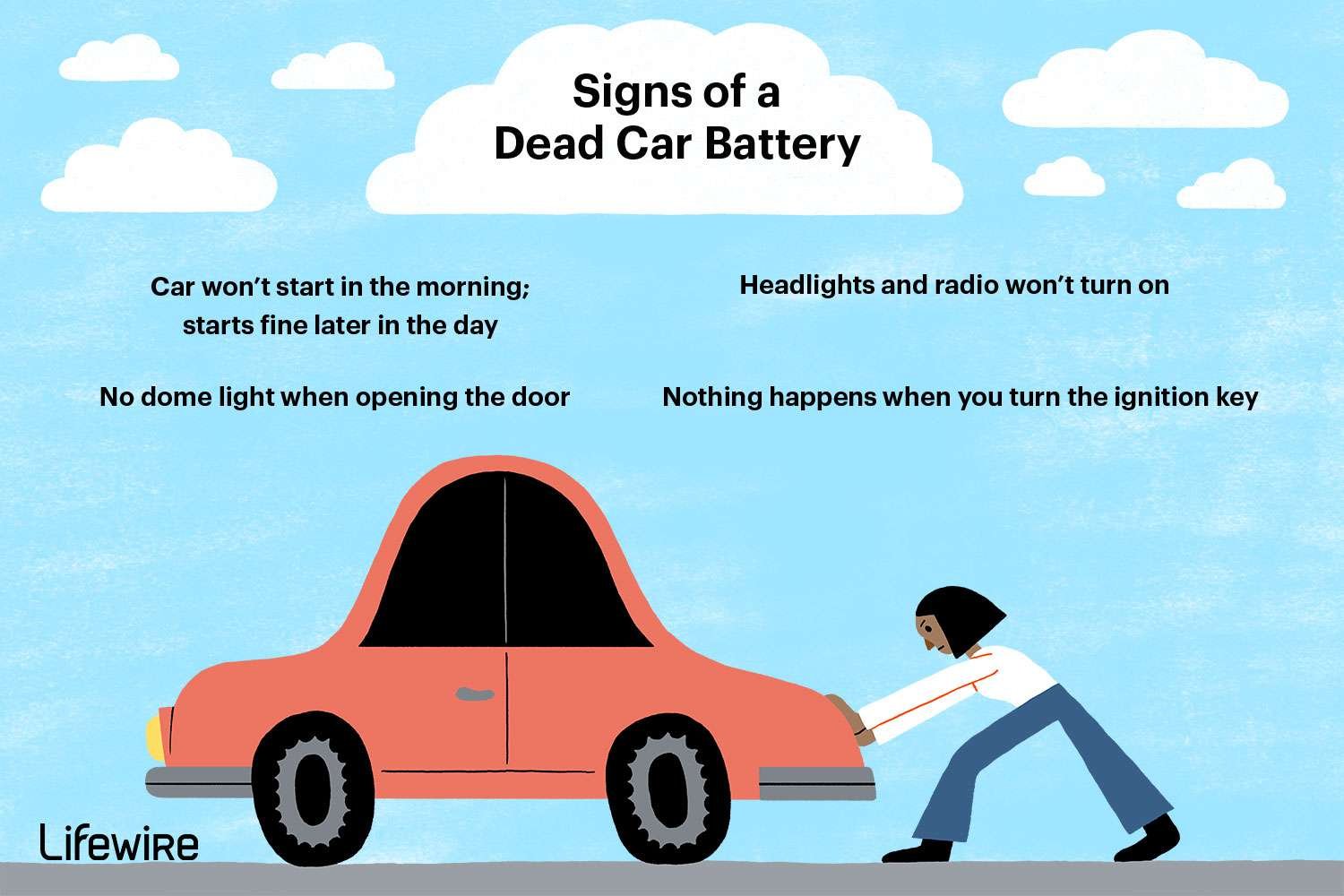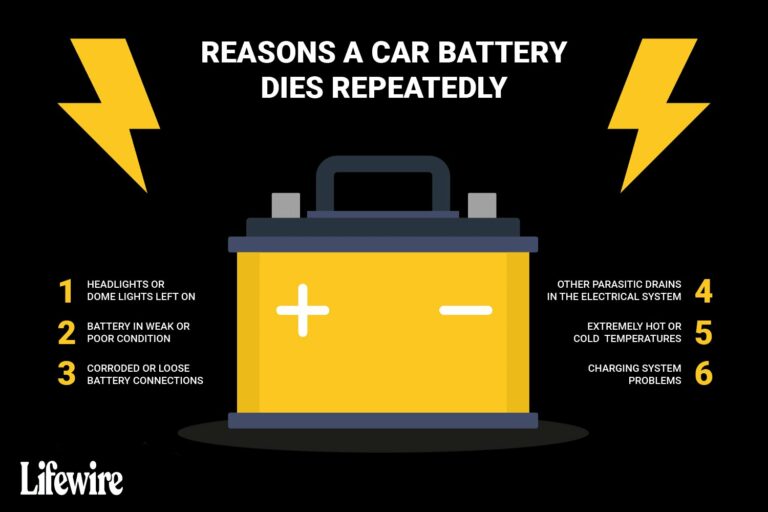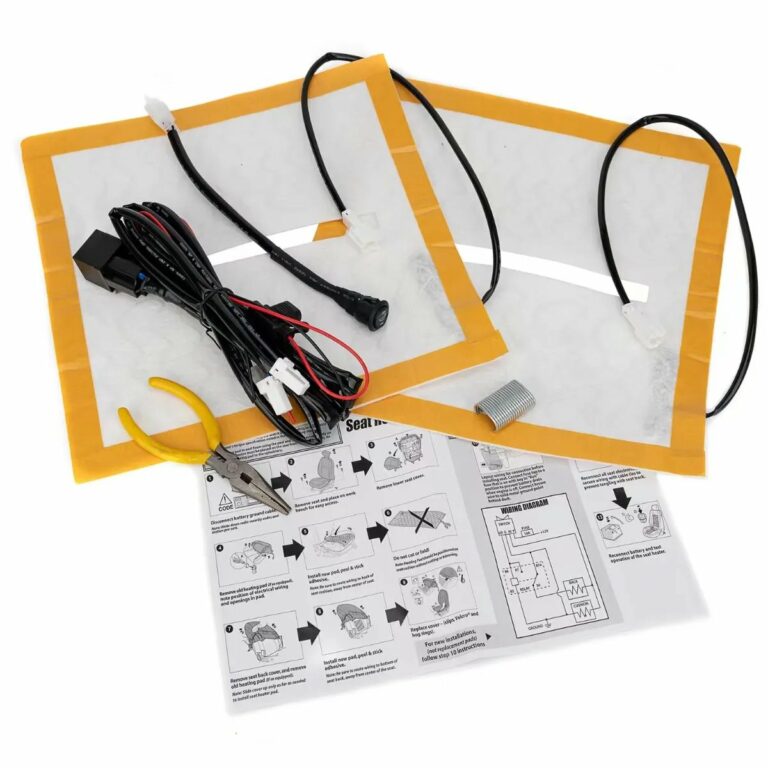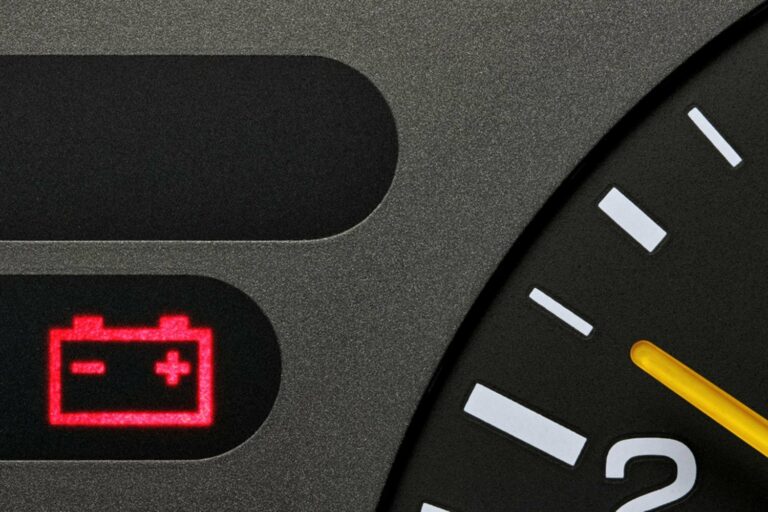Essential Guide: How To Check If A Car Battery Is Dead?
Today we discuss How To Check If A Car Battery Is Dead. If your car is not starting or displaying weak battery symptoms, and you’re unsure how to tell if a car battery is dead, fret not.
Early detection is crucial as a dead battery can inconvenience you. In this guide, we’ll walk you through easy steps to assess your car battery’s condition, ensuring you can confidently hit the road again. Let’s get started!
How to Check if a Car Battery is Dead:
Car batteries are essential for a vehicle’s electrical system, supplying power to start the engine and operate electrical components. As time passes, batteries may lose their charge or die, potentially causing you to get stuck. Here, we will explore ways to determine if a car battery is dead or requires replacement.
Visual Inspection:
A quick visual inspection can provide some initial clues about the health of your car battery. Here are some signs to look out for:
- Check for any physical damage or corrosion on the battery terminals. Corroded terminals can prevent the battery from delivering a charge to the electrical components of the car.
- Inspect the battery case for any bulges or cracks. These could indicate an internal problem and may require battery replacement.
- Examine the battery posts and cables for any loose connections or frayed wires. Loose or damaged connections can affect the battery’s performance.
Using a Multimeter:
A multimeter is a handy tool that can measure voltage, current, and resistance. It can help determine the state of charge of your car battery. Follow these steps to check the voltage of your battery using a multimeter:
- Turn off all electrical components of the car, including headlights, radio, and air conditioning.
- Set the multimeter to DC voltage mode and select a range higher than 12 volts.
- Connect the red (positive) probe to the positive terminal of the battery and the black (negative) probe to the negative terminal.
- Note the voltage reading displayed on the multimeter. If it is between 12.4 and 12.7 volts, the battery is fully charged. Readings below 12.2 volts indicate a partially discharged or weak battery. A reading below 11.8 volts suggests a dead battery.
Conducting a Load Test:
A load test can provide a more accurate assessment of your battery’s health. This test involves applying a load to the battery to measure its ability to deliver a charge. Here’s how you can perform a load test:
- Ensure all electrical components are turned off and the car engine is off.
- Connect a load tester to the battery following the manufacturer’s instructions. The load tester simulates the electrical load experienced by the battery during engine start-up.
- Activate the load tester and observe the voltage reading. A reading above 9.6 volts indicates a healthy battery, while a reading below 9.6 volts suggests a weak or failing battery that needs to be replaced.
Checking the Cranking Amps:
Cranking amps (CA) measure a battery’s ability to provide a burst of power to start the engine. Manufacturers specify the recommended cranking amps for a particular vehicle. To check the cranking amps:
- Refer to your vehicle’s manual or consult the manufacturer’s specifications to determine the required cranking amps for your car battery.
- Locate the Cold Cranking Amps (CCA) rating on the battery. This rating indicates the battery’s ability to start the engine in cold temperatures.
- Using a multimeter or battery tester, verify that the battery’s cranking amps match the recommended specifications.
Observing the Battery’s Age:
Car batteries have a finite lifespan, typically ranging from 3 to 5 years. If your battery is nearing the end of its expected lifespan, it may be more prone to failure or may struggle to hold a charge. You can determine the age of your battery by checking the manufacturer’s label or a date code imprinted on the battery case.
Testing with a Battery Analyzer:
Battery analyzers are specialized tools designed to assess the health and performance of car batteries accurately. These devices measure various parameters, including voltage, internal resistance, and overall battery condition. To test your battery with a battery analyzer:
- Connect the battery analyzer to the battery terminals according to the manufacturer’s instructions.
- Follow the on-screen prompts or refer to the tool’s manual to initiate the battery testing process.
- Review the analysis results provided by the battery analyzer. This will indicate the battery’s overall health and whether it needs to be replaced.
Seeking Professional Help:
If you are unsure about checking your car battery or lack the necessary tools, it is best to seek professional assistance. Automotive technicians have the expertise and equipment to accurately diagnose battery issues and recommend appropriate solutions. They can also perform a comprehensive charging system check to ensure all components are functioning correctly.
How to Tell if a Car Battery is Dead
Faqs for How To Check If A Car Battery Is Dead:
There are a few other signs that may indicate a dead car battery. If you hear a clicking sound when you try to start the car, it could be a sign of a dead battery. Additionally, if the engine cranks slowly or doesn’t start at all, it is likely due to a dead battery. In some cases, the battery may also have a swollen appearance or a leak, which can be visual signs of a dead or failing battery.
Yes, extreme weather can impact the lifespan of your car battery. Both cold and hot weather can affect battery performance. In cold weather, the chemical reactions inside the battery slow down, making it harder to start the car. Similarly, in hot weather, the heat can cause the battery fluid to evaporate more quickly, leading to reduced battery life. It is important to take necessary precautions and keep the battery properly maintained in extreme weather conditions.
Yes, a car battery can die suddenly. While there are usually warning signs, such as slow cranking or dim headlights, sometimes a battery can fail without any prior indication. This can happen due to various reasons, including an aging battery, electrical issues, or a sudden drain on the battery caused by leaving lights or accessories on for an extended period.
The average lifespan of a car battery is typically between three to five years. However, this can vary depending on several factors, such as weather conditions, driving habits, and battery maintenance. Extreme temperatures, frequent short trips, and failure to keep the battery charged can all contribute to a shorter battery life. Regular inspection and maintenance can help prolong the lifespan of a car battery.
To check if your car battery is dead, you can perform a simple test. Start by turning on your car’s headlights. If they appear dim or barely light up, it may indicate a dead battery. Another way is to turn the ignition key to the “on” position and check if the dashboard lights up. If they don’t, it could be a sign of a dead battery. You can also use a multimeter to check the voltage of the battery. A healthy battery should have a voltage reading between 12.4 and 12.7 volts. Anything significantly lower may indicate a dead battery.
Final Thoughts
It is crucial to know how to check if a car battery is dead to avoid unexpected breakdowns on the road. By conducting a simple visual inspection for signs of corrosion or damage, using a voltmeter to measure the battery’s voltage, and testing the battery’s ability to hold a charge, you can determine if it needs to be replaced. Regularly checking your car battery’s health is essential for ensuring optimal performance and avoiding inconvenience. Remember, knowing how to check if a car battery is dead empowers you to take prompt action and maintain your vehicle’s reliability.




